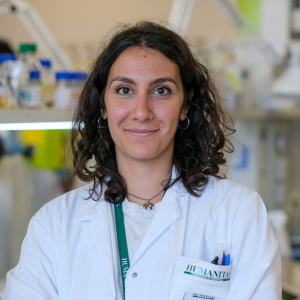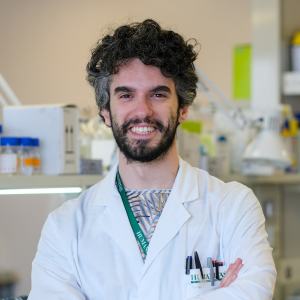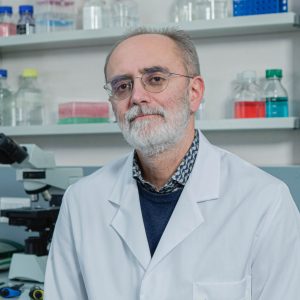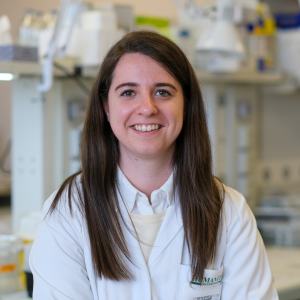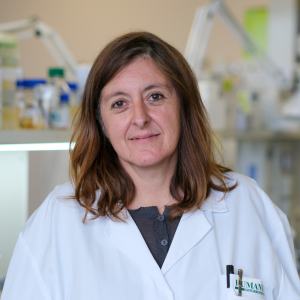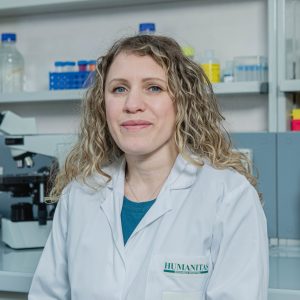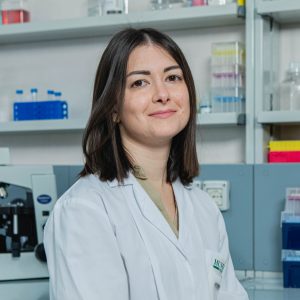Research Group
Locati Group
Leukocyte Biology Lab
Our group investigates the molecular mechanisms controlling leukocyte recruitment in inflammation and cancer, using in-vitro approaches, experimental murine models, genomics and bioinformatics, with the final aim of dissecting functional role and biological relevance of different myeloid cells in human diseases.
The challenge
As fundamental orchestrators of chronic inflammation in its diverse forms and manifestations, macrophages play a key role in a wide range of diseases, from autoimmunity to cardiovascular diseases and cancer, which remains a powerful paradigm of the plasticity of these immune cells. Substantial progress has been made in defining the role macrophages play in different clinical settings, following the paradigm of macrophages as double-edged swords in tumors, with the capacity to exert both pro and antitumor activity depending on the balance of a number of signals in the tumor microenvironment. Now the challenge is to understand the molecular basis responsible for such a diverse macrophage landscape and to translate the understanding of this diversity into new therapeutic strategies based on macrophage re-education.
Main research areas
Immune response to tumors: the role of tumor-associated macrophages
Understanding the immunosuppressive mechanisms operating in the cancer microenvironment is key to guide patients’ selection and optimize the success rate of immunotherapies. The impact of tumor heterogeneity on the biology of tumor-associated macrophages is still unknown: using single cell transcriptomic analysis, the lab investigates the functional profiles and spatial localizations of macrophages infiltrating tumors to define their role in immunosuppression and tumor progression and to identify immune biomarkers predictive of therapies efficacy. We use experimental tumor models and human high-grade glioma samples, a highly aggressive tumor with a particularly severe prognosis and few effective therapeutic options.
MS4A molecules family as an immune cells’ sensing-machinery
In collaboration with Prof. Mantovani, we discovered the non-redundant function of MS4A4, a myeloid-restricted tetraspan molecule, in macrophage response to pathogens and tumor cells. Growing evidence supports the role of MS4A proteins as regulators of immune cell responses. We are investigating the working hypothesis that MS4A proteins work as a “sensing machinery”, with different combinations of expressed MS4A proteins fine-tuning the strength of macrophages activation in response to specific immune receptors’ triggering. The expression of MS4A family members is highly restricted to cell subsets, making these molecules candidate markers to recognize and target different immune cell subsets. We are developing tools to define the potential of exploiting selected MS4A proteins to target specific monocyte/macrophage subsets.
Selected publications
Understanding fibrosis pathogenesis via modeling macrophage-fibroblast interplay in immune-metabolic context.
Distinct responses of newly identified monocyte subsets to advanced gastrointestinal cancer and COVID-19.
The tetraspan MS4A family in homeostasis, immunity, and disease.
ACKR2 contributes to pulmonary dysfunction by shaping CCL5:CCR5-dependent recruitment of lymphocytes during influenza A infection in mice.
Diversity, Mechanisms, and Significance of Macrophage Plasticity.
The macrophage tetraspan MS4A4A enhances dectin-1-dependent NK cell-mediated resistance to metastasis.
MicroRNAs as Molecular Switches in Macrophage Activation.
ACKR2 in hematopoietic precursors as a checkpoint of neutrophil release and anti-metastatic activity.
Self-renewal and phenotypic conversion are the main physiological responses of macrophages to the endogenous estrogen surge.
Priming of Human Resting NK Cells by Autologous M1 Macrophages via the Engagement of IL-1β, IFN-β, and IL-15 Pathways.
Macrophage activation and polarization: nomenclature and experimental guidelines.
International Union of Basic and Clinical Pharmacology. [corrected]. LXXXIX. Update on the extended family of chemokine receptors and introducing a new nomenclature for atypical chemokine receptors.
Negative regulation of Toll-like receptor 4 signaling by IL-10-dependent microRNA-146b.
β-arrestin-dependent activation of the cofilin pathway is required for the scavenging activity of the atypical chemokine receptor D6.
Macrophage plasticity and polarization in tissue repair and remodelling.
IL-10-induced microRNA-187 negatively regulates TNF-α, IL-6, and IL-12p40 production in TLR4-stimulated monocytes.
Control of murine Ly6C(high) monocyte traffic and immunosuppressive activities by atypical chemokine receptor D6.
Role of c-MYC in alternative activation of human macrophages and tumor-associated macrophage biology.
Group members

